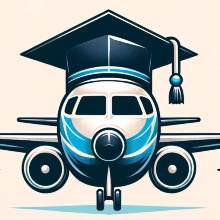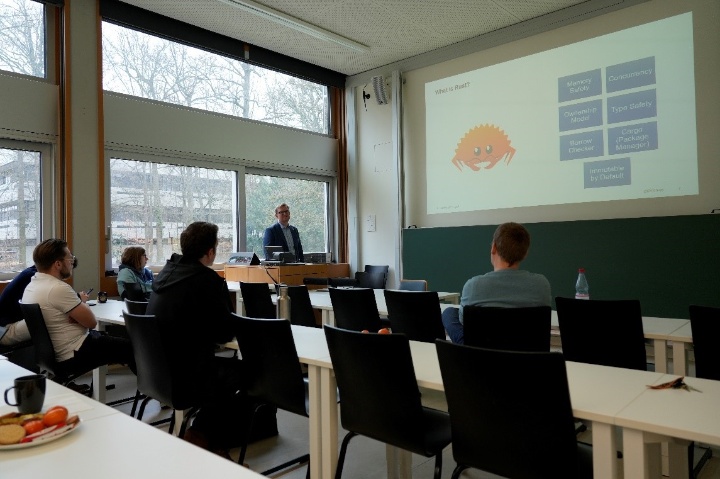What’s up in avionics research? - ILS Doctoral Seminar 2024
On March 7th and 8th, our PhD students and post-docs at ILS showcased their latest research findings at the ILS Doctoral Seminar. This event was conducted as a block seminar for the first time and was the first time completely self-organized by the students and post-docs. The seminar allowed each presenter 20 minutes to present their work followed by another 20 minutes of discussion.
A total of 15 presentations were given on a wide range of topics within the field of avionics in front of professors, ILS’s doctoral students and students.
Day 1 kickstarted with two talks focused on the flexible avionics platform, one emphasizing test artifact generation and the other on automated requirement generation. The seminar then shifted its focus to artificial intelligence in the flight deck, with two presentations demonstrating their applications of AI technology. A relatively new research focus at ILS, cybersecurity, was covered in two additional talks, beginning with a general overview of attacks and mitigations followed by model-based identification of risks and their evaluation. The day concluded with a discussion on hypervisors in plug-and-fly avionics.
The whole day was complemented by joint coffee breaks and lunch which were also used for a lively exchange among the participants. After an intense first day, participants engaged in a social event solving escape rooms, allowing them to unwind and interact in a relaxed setting. The day ended with a dinner together.
The second day commenced with presentation on cryptography to enhance the reliability of flight computers, followed by two sessions on safety-critical programming languages, focusing on Rust and Ada. Before lunch, model-based system development was explored through presentations on model transformations and graphical model editing. Post-lunch sessions included talks on method transfer from aviation to the automotive industry and IoT in avionics, with a model-based perspective on rocket systems rounding off the seminar.
The seminar concluded with an awards ceremony, celebrating unique achievements such as the fastest speaker and the first or last word spoken.
This event underscored the importance of scientific exchange and collaboration, leaving participants and organizers looking forward to the next edition with anticipation and enthusiasm.
Our doctoral Seminar not only provided valuable input for ongoing research but also fostered a community among participants, setting a high benchmark for future gatherings. We would like to thank all participants for their presentations and the interesting exchange and the hard-working organizers to make this happen.



